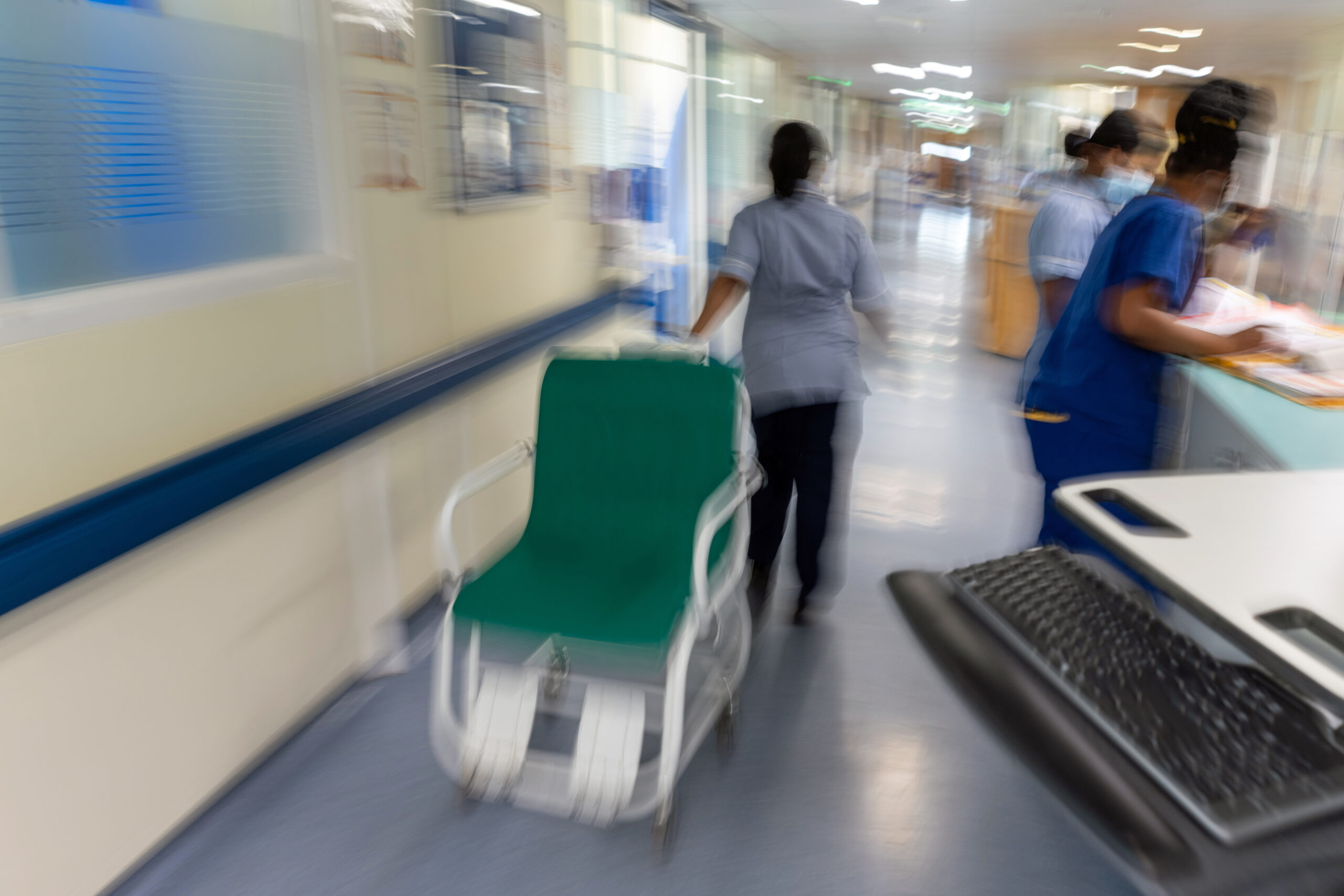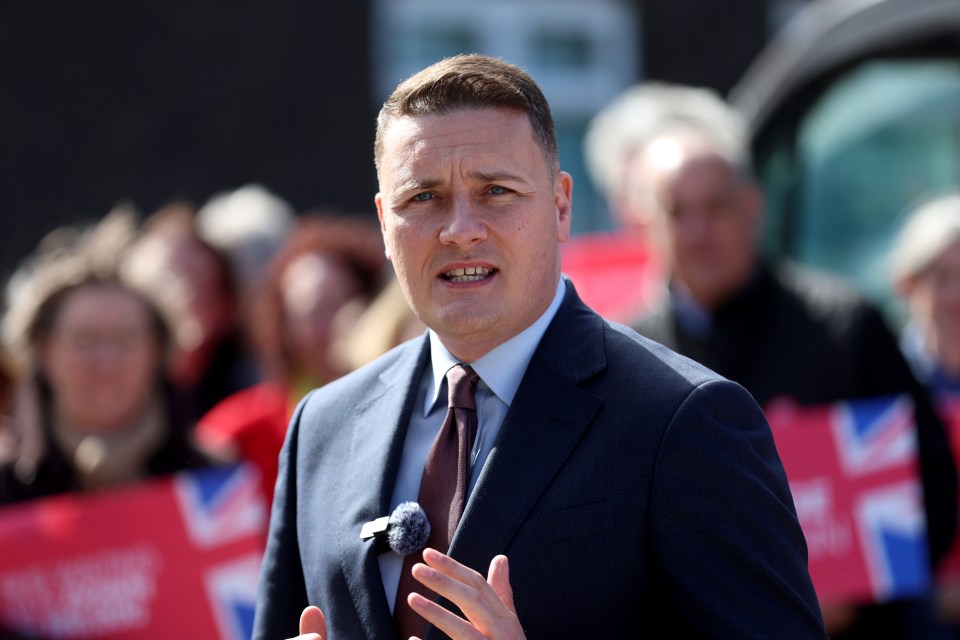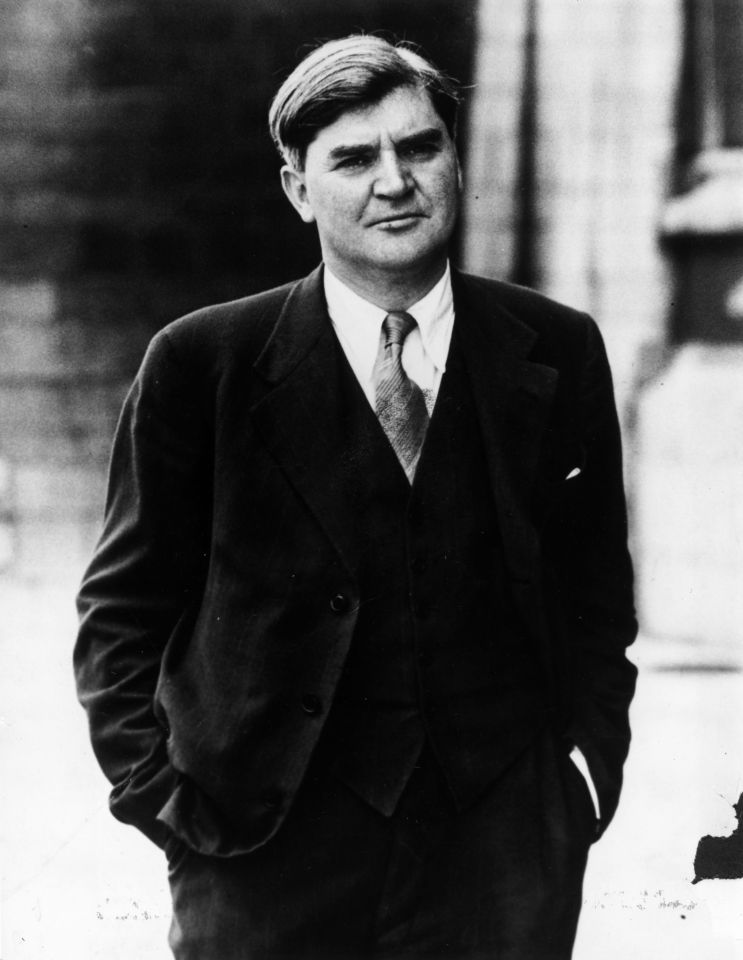THE NHS, the late Lord Lawson once quipped, is the closest the English have to a religion.
What other country would have incorporated a troupe of nurses bouncing on hospital beds into the opening ceremony of an Olympic Games?
But the pews in the Church of St Nye Bevan — the Labour health minister who oversaw the creation of the NHS in 1948 — are beginning to empty, and quickly.
Since 1983, the National Centre for Social Research has been asking people for their views on the NHS as part of its Social Attitudes Survey.
The number of people saying they are satisfied has fallen to a record low of just 20 per cent, with 55 per cent saying they are dissatisfied.
The collapse in public confidence has been dramatic.
READ MORE ON THE NHS
Remarkably, faith in the NHS remained high throughout the years of supposed “austerity”.
In 2012, the year of the bouncing nurses at the London Olympics, the figures were the other way around, with 60 per cent satisfied and 23 per cent dissatisfied.
Two years later, when David Cameron and George Osborne were still being accused of laying the NHS to waste, satisfaction had climbed to 65 per cent and dissatisfaction to just 15 per cent.
Everything has changed since the pandemic.
Most read in The Sun
We no longer seem to have much confidence that the NHS will make us better.
Satisfaction is especially low regarding A&E and dentistry, and not much higher for general practice.
Can anyone really be surprised?
For too many of us, securing an appointment with a GP has become a frustrating business, requiring a mad early morning dash to the phones.
Five years after Covid-19, GPs are still finding excuses to keep patients out of the surgery.
The percentage of appointments carried out face to face has never recovered. In 2019/20 it was nearly 80 per cent.
In 2023/24 it was only 68 per cent.
Then, of course, came the strikes.
Unions seemed to believe that the public were so madly in love with the NHS that they would get away with holding the country to ransom.
They were wrong.
While there were quite high levels of sympathy to begin with, support began to slide for every month the strikes continued.
By the beginning of last year, a majority disapproved of strikes by consultants and support for junior doctors was plunging just as quickly.
Striking for a 35 per cent pay rise, as junior doctors did, doesn’t go down well among people who are themselves struggling with a cost-of-living crisis.
The knee-jerk reaction on the Left towards poor NHS performance is always to demand more money for the health service.
But its real problem is declining productivity.
In 2022 — after the pandemic but before the strikes — the average worker in the NHS was producing 15 per cent less than they were in 2017/18.
There is little to make anyone think that its performance will have improved since Rachel Reeves bought off doctors by stuffing their mouths with gold, to borrow an expression from Nye Bevan.
To be fair to Health Secretary Wes Streeting, he seems less starry-eyed about the NHS than his predecessors.
His own experience as a cancer patient led him to recognise the yawning gap between the myth of the NHS and its reality.
He has taken a step, which the Conservatives failed miserably to take, to abolish the bumbling bureaucracy that is NHS England — a Cameron-era creation that was supposed to improve the workings of the NHS single market, but which was rather better at creating job opportunities for pen-pushers.
The long years of adulation towards the NHS are a big part of the problem.
State-owned monolith
No government dared properly to tackle the inadequacies of the system because they were too frightened of public opinion.
They feared the public would always take the unions’ side.
The craven attitude has stopped the nation asking: Does every hospital, clinic and surgery have to be owned by, or be under the control of, a single, state-owned monolith?
Surely, what the public cherishes about NHS healthcare is that it is either free on the point of delivery or at least accessible to everyone regardless of means, not who directly employs the people treating them or owns the building in which they are treated.
The private sector has the potential to lower costs and improve treatment, yet it provides only a minuscule proportion of NHS treatments because governments have been too frightened of the ideological charge that they are “privatising the NHS”.
Interestingly, it is young people who are losing faith in the NHS the fastest.
Among the over-65s, satisfaction actually rose a little last year.
Read More on The Sun
But for younger people who are used to being able to buy what they want, when they want it, book flights and hotels with a swipe of their phone, the NHS seems stuck in the years of post-war rationing.
The rest of the world has moved on, and it is about time the NHS did, too.













